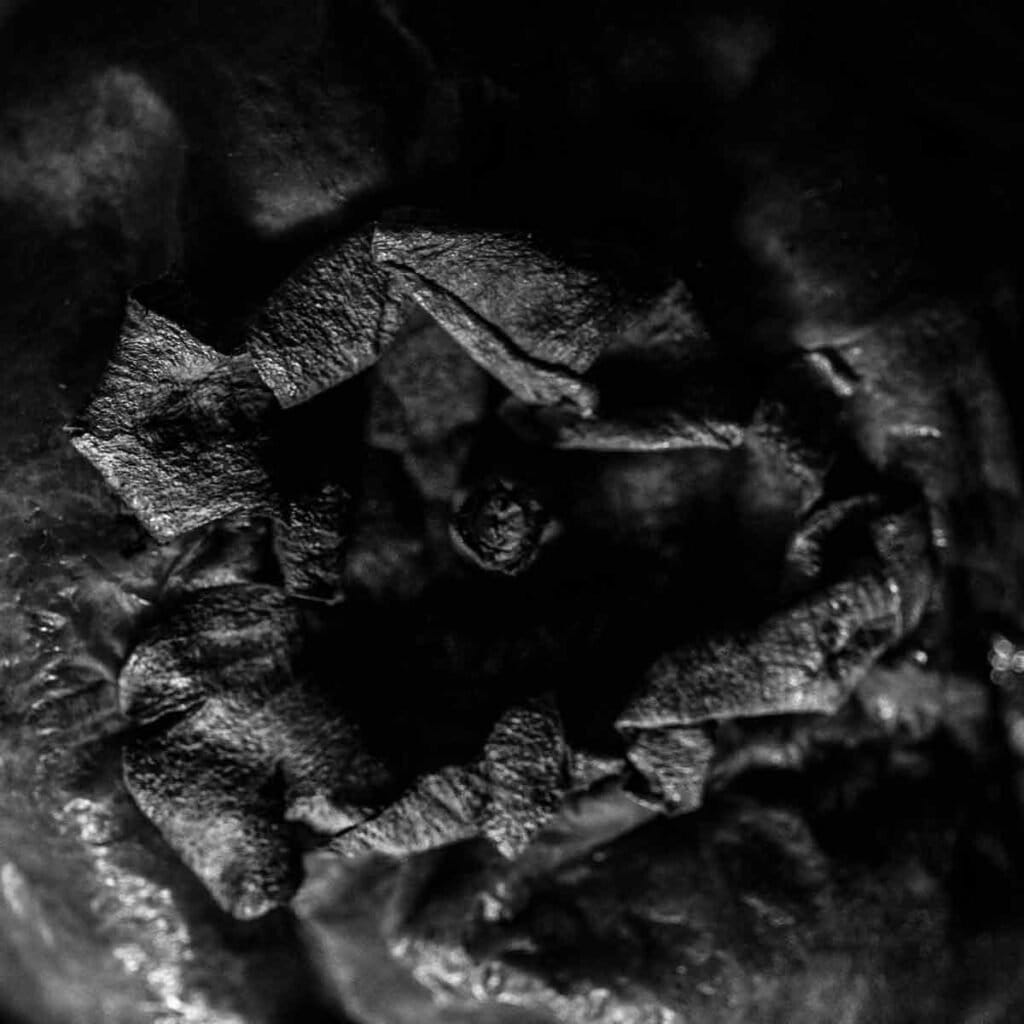January 2025 | poetry, Pushcart nominee
I get asked to be on a podcast
and he’s never read any of my poems, ever,
doesn’t even know my name, asks me, “So,
what’s your name?” as if this is a thoughtful
question, and I wonder how much research
he’d have had to do to find out my name,
especially when we’ve already exchanged
multiple emails, and he says, “So, what are
you? A poet? A fiction writer?” And I
realize he’s going to ask me my height next
and weight after that and maybe we’ll get
into sports and weather in a bit, and I realize
how much I ache to have a person who just
simply sees me, how I was just on an elevator
yesterday with two people, one on my left
and one on my right, and how they talked
through me, as if I am a ghost, and I get
ready for the podcast host to ask me if I’m
a phantom and I get myself ready to say,
“I don’t know. I might be. I feel like
I’m fading.” And I remember seeing
an interview with Norm Macdonald
when it was nearing the end of his life
and no one knew it was nearing the end
of his life, except him and a few other
very select people, and it feels like that
for me, like I’m near the end, and when
I write, sometimes I think, “Is this my last
poem?” And I remember talking to Donald
Hall, who was always so kind to me, and him
telling me that he was too tired to write poetry
anymore, that he could write non-fiction, but
that poetry just took everything out of him,
the exhaustion, how he felt tired just telling me
this, how you could hear the enthusiasm lessening
in his voice, how frightened I was to get the sense
that someone was leaving before they were leaving
and, thank God, his words have stayed . . .
A friend asked me what kind of a poet I am and I said,
“a horror poet” and he asked what that means and
I showed him the statistics of murders in Detroit and
I showed him that we have a murder every day and
I took him in my car and we drove one block and
I pointed and said they murdered him for his watch.
Who? I told him who they murdered and about his
watch and we drove and we were in front of a restaurant
and I told him about the bodies and in the last three days
we’ve had shootings on Minden Ave and on Jefferson Ave
and on Moross Rd and on Joy Rd and on Biltmore Rd
and I think of joy and not-joy, of how we keep mastering
anger, how online’s a storm, how I’ve seen footprints made
from blood, how I looked down after the riot near
my home and the footprints led to a tree and I looked
up, expecting to see someone up there, but it was empty,
and my mother used to be a therapist and she told me,
“The more symptomatic someone is, the more severe
the depression or the anxiety, the more guns they own.”
She said she could tell someone’s mental health by
the amount of guns in the home, that the people
who were the most unstable would have ten, twenty,
thirty, more guns. That it was like the guns were this
screaming of how they needed help. That their houses
were made of guns. Gun-walled. We drove by abandoned
homes and I’d think of abandoned people. And my
mother said angels are anyone in this life who makes
people hurt less. She said that we get a rush in our blood
when we hurt people, but that it is the evil of everything.
She said that the calm comes when you try to protect
the hurt. She said this while smoking. She smoked like
a chimney in a house that was on fire. She’d get mid-
night calls from people who were suicidal and I remember
hearing her whispering in the other room when I was little.
I remember asking her, “What is suicide?” and it was near
Christmas and the lights were blinking behind her and she
started crying, not saying anything, just bawling, and I was
so little that I thought that was her response. I thought that
the answer to “What is suicide?” is a brutality of tears.
And maybe that is the only true response. I wish I could
paint it for you, the pain, how beautiful those lights were,
the music on softly in the background, something promising.
Ron Riekki
Ron Riekki has been awarded a 2014 Michigan Notable Book, 2015 The Best Small Fictions, 2016 Shenandoah Fiction Prize, 2016 IPPY Award, 2019 Red Rock Film Fest Award, 2019 Best of the Net finalist, 2019 Très Court International Film Festival Audience Award and Grand Prix, 2020 Dracula Film Festival Vladutz Trophy, 2020 Rhysling Anthology inclusion, and 2022 Pushcart Prize. Right now, Riekki’s listening to Holy Fuck’s “Lovely Allen.”
October 2024 | poetry
1900’s high tech vocabulary comes to mind.
Following the stapler, stethoscopes, steam locomotives, safety pins,
and tungsten steel much spoken of in our metallurgist’s family
where Dad won a Bessemer medal and we all hazarded a worry
while stepping into the Barney’s department store elevator
about metal fatigue, came this rearrangement
of antique comforts and distresses. Camphor,
eucalyptus, levomenthol, thyme, and cedar oil:
call them to mind and hearing this
you can feel already the aromatic stirrings swirl
up your sinuses. I think of embalming — myrrh
in the exotic garden setting the space ajar between death
and preservation. I thought it was named after my Dad — Vick’s —
and remember dimly him circling it on my chest
at night through the crush and press and gasp
of pertussis, how he sat by my bed through the night
when I was four, and camphor swirled like saints’ ghosts
up from the sheets. Bitter bewitching notes of turpentine
made me dream of his soaked rag in a tin in the cellar
for wiping oil paint splotches off our hands;
and paraffin — that lit my Nana’s glass lamps before the cords
came spidering across the ceilings. These ancient consolations
cleansing, opening, embrocatory magic
worked their mending sorceries toward sleep.
I have only to unscrew the small blue jar
from the shrine of my medicine cabinet’s back shelf
and trustworthy hands are anointing me again like hierophants
by night, whispering: rest and mend, and then,
you, too, go out and heal and make things strong and well.
Jennifer M Phillips
A much-published bi-national immigrant, gardener, Bonsai-grower, and painter, Jennifer M Phillips has lived in five states, two countries, and now, with gratitude, in Wampanoag ancestral land on Cape Cod, Massachusetts. Her chapbooks: Sitting Safe In the Theatre of Electricity (i-blurb.com, 2020) and A Song of Ascents (Orchard Street Press, 2022), and Sailing To the Edges (Finishing Line Press, forthcoming 2025). Two of Phillips’ poems were nominated for a Pushcart Prize. Her collection is Wrestling with the Angel (forthcoming, Wipf & Stock).
October 2024 | poetry
Today’s sky is a weak imitation of blue.
She slips in the back door, a line cook
at the brasserie in Saint-Germain-des-Prés,
well-known for duck, well-known
for drifters and dreamers, lovers long gone
and those newly found. The man at the bar
will lie his way into any woman’s good graces
but that’s not her problem today, even though
they talk about him in back in many languages.
Duck perfectly rendered, apricots
tender and jam-like as they let go
of summer to tantalize with their scent
before the lunch rush,
haricots verts amandine butter-basted,
and if she has a few extra minutes, help
the pastry chef with crème brȗlée.
Curtains sweep open to her childhood
cooking with maman before the postcard—
dashed off in pencil—au revoir my child,
be strong, love well, you will always
be in my heart. She grabs a small glass
of almost-going-bad Bordeaux
and a bummed-off-a-bad-boy cigarette,
takes a quick break outside,
torn between the touching young words
of that postcard, and the yelling going on
in the kitchen.
She wears drab clothes one could call
military castoffs, and clogs, the footwear
of all kitchen personnel. She walks
the streets of the city before her shift,
goes to the markets, feeds heels of bread
to the fish in many different parks,
watches a gulls wings widen
in the coming-up sun, and greets
the old men playing morning chess,
espresso carts waiting to serve them when
they break—she plants a maternal kiss
on each man’s forehead, she’s known them for years.
They will always be in her heart, even the ones
whose weary eyes are shut against the world.
By Tobi Alfier
Tobi Alfier’s credits include Arkansas Review, The American Journal of Poetry, Cholla Needles, Gargoyle, James Dickey Review, KGB Bar Lit Mag, Louisiana Literature, Permafrost, Washington Square Review, and War, Literature and the Arts. She is co-editor of San Pedro River Review (www.bluehorsepress.com).





